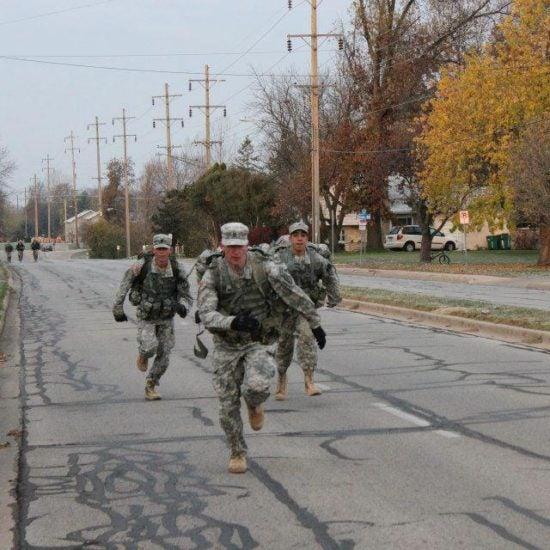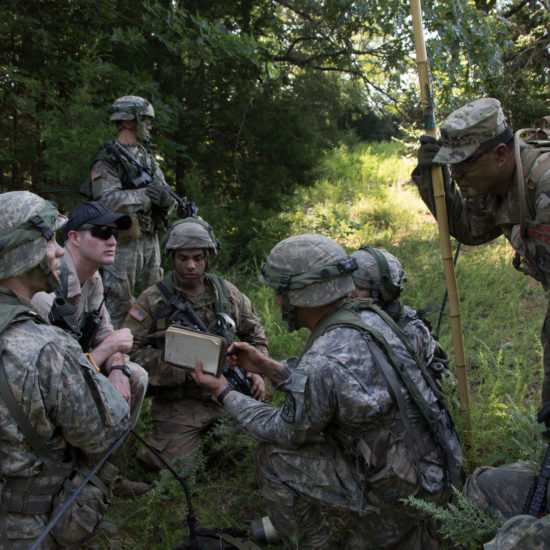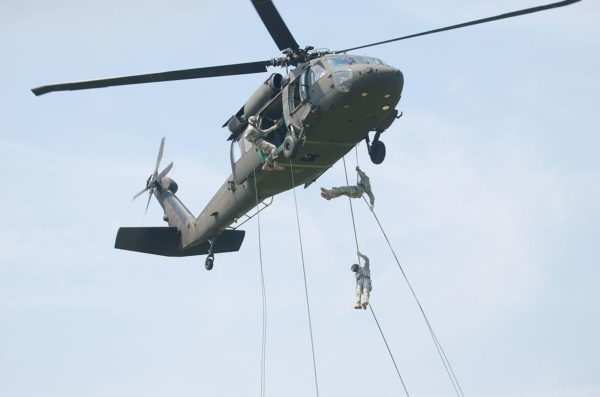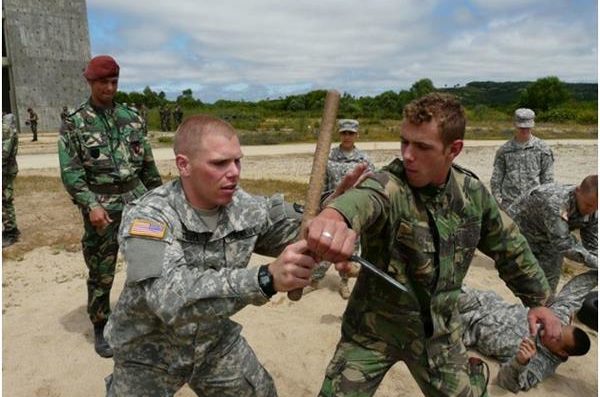Summer Training
Introduction
Every summer cadets from all over the nation participate in the Army's largest training event, Cadet Summer Training (CST). This includes over 10,000 cadets attending training at FT. Knox in two sections: Basic Camp and Advance Camp.

Basic Camp
Basic Camp is a 32-day training event designed to introduce Cadets to the Army. The objective is to develop Cadet leadership skills and train them on individual and junior leader tasks to develop and reinforce Warrior Ethos and our Army Values. Basic Camp provides the critical thinking skills necessary to succeed in ROTC, and, ultimately, the Army. Basic Camp Cadets graduate the course prepared to lead at the team (3-4 Cadets) and squad (9-13 Cadets) level.
Basic Camp’s primary target audience is the Lateral Entry Cadet and the freshman Cadet. Lateral Entry Cadets typically decide to join ROTC in their sophomore year of college, thus require Basic Camp to learn what normal-progression Cadets have learned in their first two years of military science classes, during their freshman and sophomore years of Army ROTC. As an ancillary target, Basic Camp allows second-year (Military Science II or MS II) Cadets to gain squad leader experience, which provides opportunities for some MS III (rising senior) Cadets to fulfill roles as platoon-level leaders. Basic Camp consists of eight Cadet Regiments, nearly 3,000 Cadets.

Advanced Camp
Advanced Camp is a 35-day training event designed to develop a cadet’s critical thinking and problem-solving skills, and to forge them into tough, adaptable leaders who can thrive in ambiguous and complex environments. Cadets are evaluated on their ability to lead at the Squad and Platoon levels, both in garrison and tactical environments. Cadets are mentally and physically tested during a 12-day consequence driven field training exercise that replicates a combat training center rotation. Successful completion of the Advanced Camp is a prerequisite for commissioning.
The mission of Advanced Camp is to assess a Cadet’s potential to serve as a commissioned officer. It is the most significant training and evaluation event in ROTC. Training is complex, challenging, and rigorous and is conducted in a stressful training environment. Cadets reinforce basic skills through squad (9-13 Cadets) level leader development exercises, and transition to platoon (40-50 Cadets) level operations in a company construct. Prior to attending Advanced Camp, Cadets receive intelligence updates, preparing them for the geo-political environment to which they will deploy and operate.
Title
Other than CST, Cadets who qualify also take part in other training events.
The US Army Airborne School is where paratroopers are born. Students learn how to conduct Airborne operations.
The US Army Air Assault School teaches students in the way of heli-borne operations. This course covers everything from sling loads to rappelling out of a helicopter
The Cultural Understanding & Leadership Program (CULP) is where cadets have the opportunity to train with another nation’s military or conduct humanitarian missions within another nation.


